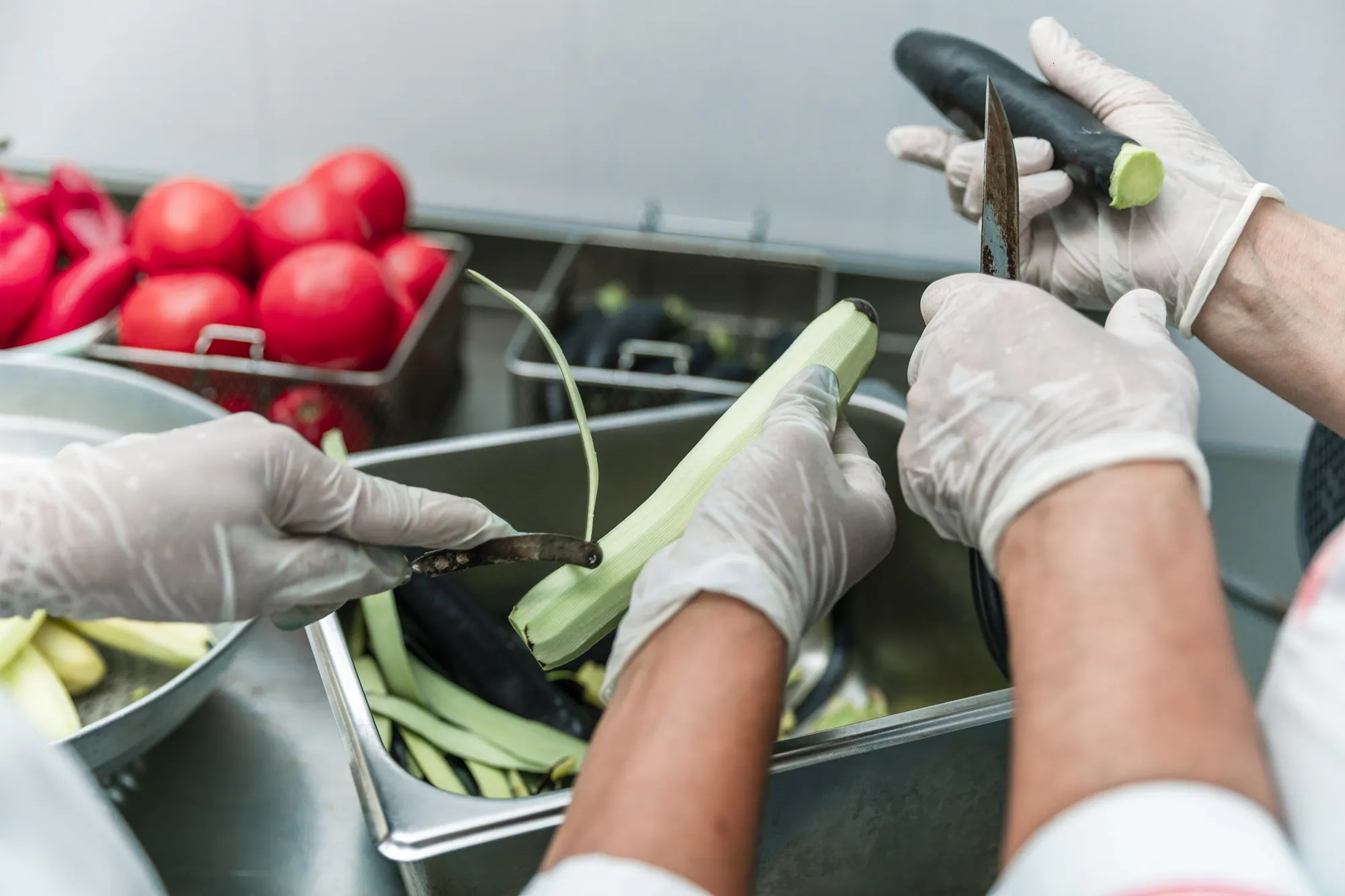Are you interested in Food Hygiene? Then this is the perfect course for you. Learn how to manage Food professionally!
200 Hours Duration
Completion Certificate
No Entry Requirements
Endorsed Courses
Get Your Course Now
Only 1 Day Left at this price
Discount 80% £395.00


Course Overview
Level 3 Food Hygiene
Get your career on the fast track to success starting today, with this exclusive Level 3 Food Hygiene and Safety Certificate. CPD Courses is proud to present this fully endorsed Food and Hygiene Level 3 training course, now open for enrolment with no prior knowledge or experience required.
Careers in the UK’s food sector are ideal for hardworking candidates, looking to transform their ambition into a rewarding career for life. The food sector is one of the largest and most diverse employers in the UK, creating millions of jobs for candidates from all backgrounds. The hospitality sector alone employees more than 3.2 million people in various capacities, while the food and drink manufacturing sector create a further 440,000 jobs. The combined annual turnover of these two sub-segments of the industry is more than £230 billion. Employers are constantly on the lookout for new and talented individuals to add to their ranks at a variety of levels. Whatever you’re professional and academic background to date, a career in the food sector could be just the thing to maximise your potential.
This endorsed is now open for enrolment at CPD Courses. Each of the nine in-depth modules covers a different topic or knowledge area, including food handling and storage, an introduction to food poisoning, allergen labelling responsibilities in food manufacturing and more. On-demand tutor support is available throughout and there are no deadlines or time restrictions imposed. Enjoy the freedom to study in your own time at a pace to suit your lifestyle, from any location worldwide.
Sign up online and gain immediate access to our digital learning platform or contact our admissions team today if you have any questions.
Who Should Take This Course
- Newcomers seeking to start a career in the food service or hospitality industry
- Food handlers and kitchen staff aiming to meet essential hygiene and safety standards
- Restaurant and catering personnel responsible for food preparation and storage
- Graduates looking to transition into food safety, health inspection, or related roles
- Business owners in the food sector seeking to improve compliance and customer safety
- Supervisors and team leaders in food businesses wanting to reinforce hygiene practices
- Employees handling packaged or transported food items needing formal training
- Retail and supermarket staff involved in food handling and labelling
- Anyone aiming to enhance their food hygiene knowledge for career development
- Professionals looking for CPD-accredited certification in food hygiene and safety
Course Syllabus
CPD Courses exclusively offers the web’s the most flexible and accessible distance learning programs, ideal for ambitious candidates pursuing successful careers. Our exclusive Level 3 Food Hygiene and Safety Certificate incorporates 04 engaging modules, each concluding with an online assessment for submission to your assigned tutor:
Module 1: Introduction to Food Safety and Hygiene
This opening module introduces the core principles of food hygiene and explains why proper safety standards are essential in preventing contamination and protecting consumers. Learners explore the importance of workplace hygiene practices.
Module 2: Understanding Microorganisms and Foodborne Illness
Students learn about the different types of microorganisms that cause foodborne illness and examine how contamination occurs. The module also covers prevention strategies to minimise health risks.
Module 3: The 4Cs of Food Hygiene
This section focuses on Cleaning, Cooking, Chilling, and Cross-contamination as the foundation of safe food handling. Learners gain practical insights into applying the 4Cs effectively in any food-related environment.
Module 4: Food Handling, Storage, and Transportation
The module explains safe practices for handling food, correct methods of storage, and hygienic transportation. Learners also study temperature control and measures to reduce spoilage.
Career Path
Anyone looking to build a successful lifelong career in the food industry needs an established understanding of the fundamentals of food safety. This applies to all food workers at all levels, from entry-level members of the workforce through to senior managers and business owners. This exclusive Level 3 Food Hygiene and Safety Certificate comes highly recommended to anyone who works with food in any capacity. Just a few typical job titles in the food industry include Catering Manager, Food Production Worker, Counter Server, Human Resource Manager, Product Development Lead, Food Production Worker, Human Resource Manager, Restaurant General Manager and many more besides.
Endorsement
At the end of this course successful learners will receive a Certificate of Achievement from the Quality Licence Scheme and a Learner Unit Summary (which lists the components the learner has completed as part of the course).
This course and/or training programme has been endorsed by the Quality Licence Scheme for its high-quality, non-regulated provision and training programmes. This course and/or training programme is not regulated by Ofqual and is not an accredited qualification. Your training provider will be able to advise you on any further recognition, for example progression routes into further and/or higher education. For further information please visit the Learner FAQs on the Quality Licence Scheme website.
FAQs
What is the meaning of food hygiene?
Food hygiene refers to the practices and measures taken to ensure food is safe and clean, from preparation to consumption. It includes personal hygiene, equipment sanitation, and handling practices that prevent contamination and illness.
What are the 5 key principles of food hygiene?
The five key principles are:
- Keep clean
- Separate raw and cooked foods
- Cook thoroughly
- Keep food at safe temperatures
- Use safe water and raw materials
What is the difference between food hygiene and food safety?
Food hygiene focuses on the conditions and practices that prevent food contamination, while food safety is a broader concept covering all steps to ensure food is safe for consumption, including sourcing, production, storage, and transportation.
What is the meaning of unhygienic food?
Unhygienic food refers to food that has been prepared, handled, or stored in unsanitary conditions, making it unsafe to eat. This can lead to foodborne illnesses or spoilage due to bacterial contamination.
What are the two types of food hygiene?
The two main types of food hygiene are:
- Personal hygiene – cleanliness and habits of food handlers
- Environmental hygiene – cleanliness of surfaces, equipment, and the food environment
Is this course suitable for beginners in the food industry?
Yes, the Certificate in Food Hygiene QLS Level 3 is designed for both beginners and those with basic experience, offering practical insights and essential skills to work safely in food-related environments.
Do I need any prior qualifications to enrol in this course?
No, there are no prerequisites. Anyone with an interest in food hygiene and safety can enrol and benefit from the course content.
Can I study this course online and at my own pace?
Absolutely. The course is entirely online and self-paced, allowing you to study anytime, anywhere, based on your schedule and availability.
What kind of assessment is required to complete the course?
Each module ends with an online assessment to test your understanding. You’ll submit these to your assigned tutor, and successful completion of all assessments is required to earn your certificate.
What certificate will I receive after completing the course?
You will receive a CPD-accredited Certificate in Food Hygiene QLS Level 3, issued by OHSC, along with a Certificate of Completion from CPD Courses.


Your Certificate, Delivered Instantly & Professionally
Finish your course and instantly download your PDF certificate to share or showcase. Prefer a hard copy? We’ll send you a beautifully printed version, ready to frame and display with pride!
Recognised CPD Certification
Earn a fully accredited CPD certificate that’s respected across industries.
Instant Download & Print
Download your certificate immediately after completing your course – perfect for your records or CV.
Printed Copy Included
You’ll also receive a professionally printed certificate delivered straight to your door – ideal for framing and display.

Verifiable Unique ID
Each certificate includes a unique ID number, easily verifiable by employers.
High-Quality Print
Enjoy a professionally printed certificate that looks impressive and feels premium.
Completion dates included
Your certificate clearly displays the completion date, making renewal planning simple.
What our Students say
Celebrating our Clients and Partners





























